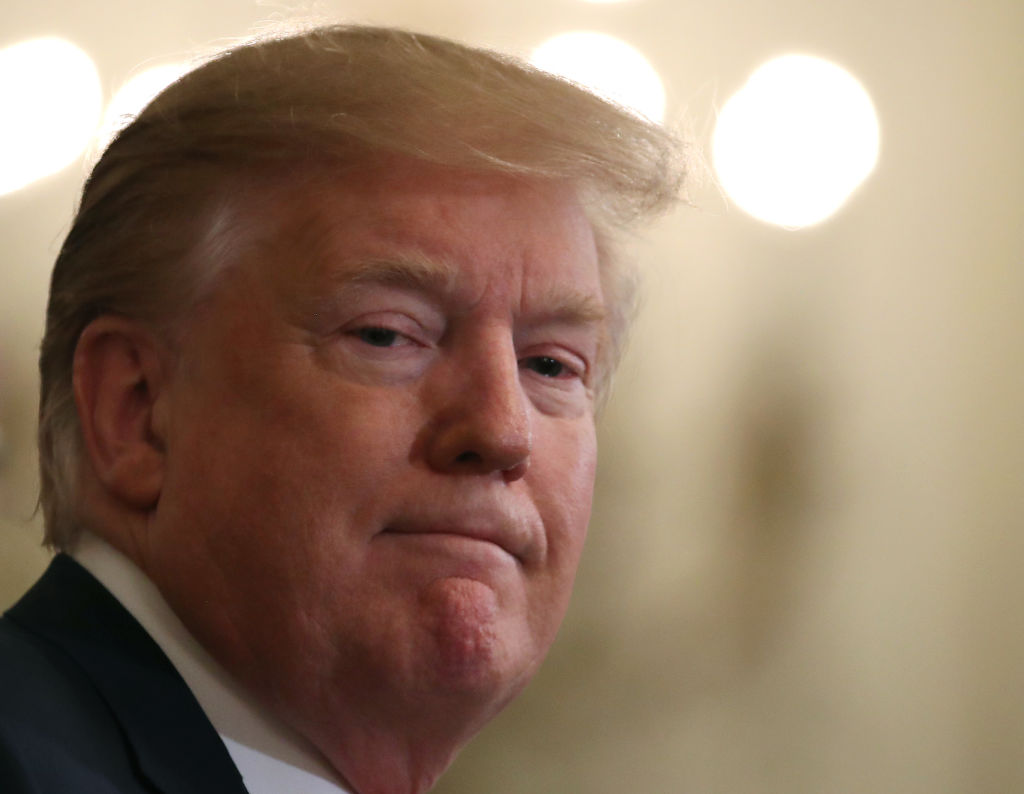The Report on the Investigation into Russian Interference in the 2016 election has been released to the public although it contains promised redactions in the time leading up to the release by Attorney General William Barr.
The report outlines multiple actions that Congress could use to issue articles of impeachment against the president.
Special Counsel Robert Mueller states that his office would be unable to charge a sitting president, but the same restrictions are not placed on Congress. He wrote: "The conclusion that Congress may apply the obstruction laws to the President’s corrupt exercise of the powers of office accords with our constitutional system of checks and balances and the principle that no person is above the law.”
Here are four incidents listed in the report that could lead to President Donald Trump's impeachment.
1. His campaign's effort to obtain stolen emails
The report details that after Trump famously hoped Russia would “find the 30,000 emails that are missing,” Michael Flynn, who later pleaded guilty to lying to the FBI about conversations with the Russian ambassador, recalled Trump repeatedly made the request. This urging led Flynn to contact Peter Smith, an investment advisor active in Republican politics, who tried to locate and obtain the missing Clinton emails.
Donald Trump: "Russia, if you're listening, I hope you're able to find the 30,000 emails that are missing."https://t.co/XHc9hh4gBt
— CSPAN (@cspan) July 27, 2016
Smith hired cybersecurity experts and hackers to execute his efforts, circulating a document that his work was “in coordination with the Trump campaign” and listing officials known to be associated with the campaign. The investigation established Smith communicated with campaign officials about his search for Clinton's emails but could not establish any listed individuals “initiated or directed” Smith's efforts.
This effort may not be Russian collusion, as many suspected, but is possibly not much different as Trump asked those on his campaign to hack data, and someone in contact with his campaign sought to do so through illegal means. Similar actions occurred during the Watergate scandal that resulted in the resignation of President Richard Nixon.
2. Intimidation of witnesses and obstruction of justice regarding Paul Manafort
During the investigation of his former campaign manager Paul Manafort, Trump made multiple statements with the possible effect of influencing Manafort's decision to cooperate with the government.
According to the report, “The President's actions towards witnesses in the Special Counsel's investigation would qualify as obstructive if they had the natural tendency to prevent particular witnesses from testifying truthfully, or otherwise would have the probable effect of influencing, delaying, or preventing their testimony to law enforcement.”
The report included that a possible defense for the president is the statements were made in public and not in secret from investigators, but the Special Counsel's office debunked that reasoning.
“No principle of law excludes public acts from the scope of obstruction statutes,” the report reads. “If the likely effect of the acts is to intimidate witnesses or alter their testimony, the justice system's integrity is equally threatened.”
3. Intimidation of witnesses and obstruction of justice regarding Michael Flynn
In a similar but more private affair, the president's personal counsel relayed messages to Michael Flynn's attorneys encouraging him to stay strong and signaling that the president still cared about him. When Flynn withdrew from a joint defense agreement with the president, tipping his hand to potentially cooperating with the government, the president's counsel stated, “the decision would be interpreted as reflecting Flynn's hostility towards the President.”
Similar to the Manafort charge, this, too, avoided prosecution since investigators could only connect the president's counsel to the messages and not Trump himself.
“Because of privilege issues, however, we could not determine whether the President was personally involved in or knew about the specific message his counsel delivered to Flynn's counsel,” the report states.
4. Obstruction of justice and attempting to fire Special Counsel Mueller
The report shares that President Trump sought to have former Attorney General Jeff Sessions recuse himself and limit the investigation by firing the Special Counsel.
He also instructed former White House Counsel Don McGahn to have Special Counsel Mueller fired due to conflicts of interest, but McGahn refused. Later, the president ordered McGahn to refute accounts and lie about the incident, but McGahn again declined to bring the information to the Special Counsel's investigators.
The described incidents spark memories of Nixon once again and the “Saturday Night Massacre,” when President Nixon ordered the attorney general and his deputy to fire Special Counsel Archibald Cox; both refused and immediately resigned. When Nixon got to the third most-senior official, his request was met, and Cox was removed. The events of that day were a large part of the Watergate scandal cover-up that led to President Nixon's resignation.
The Mueller report concludes, "If we had confidence after a thorough investigation of the facts that the President clearly did not commit obstruction of justice, we would so state. Based on the facts and the applicable legal standards, we are unable to reach that judgment."
— Donald J. Trump (@realDonaldTrump) April 18, 2019
Any of those offenses could be used to start impeachment proceedings. According to the report, Trump's response after learning of Special Counsel Mueller's appointment was "Oh my God. This is terrible. This is the end of my presidency. I'm f***ed." Despite his memes and continued stating of “No Collusion,” his first thought may be right.
Maxine Waters Continues Push for Impeachment, Issues Subpoena for Trump's Bank Records
